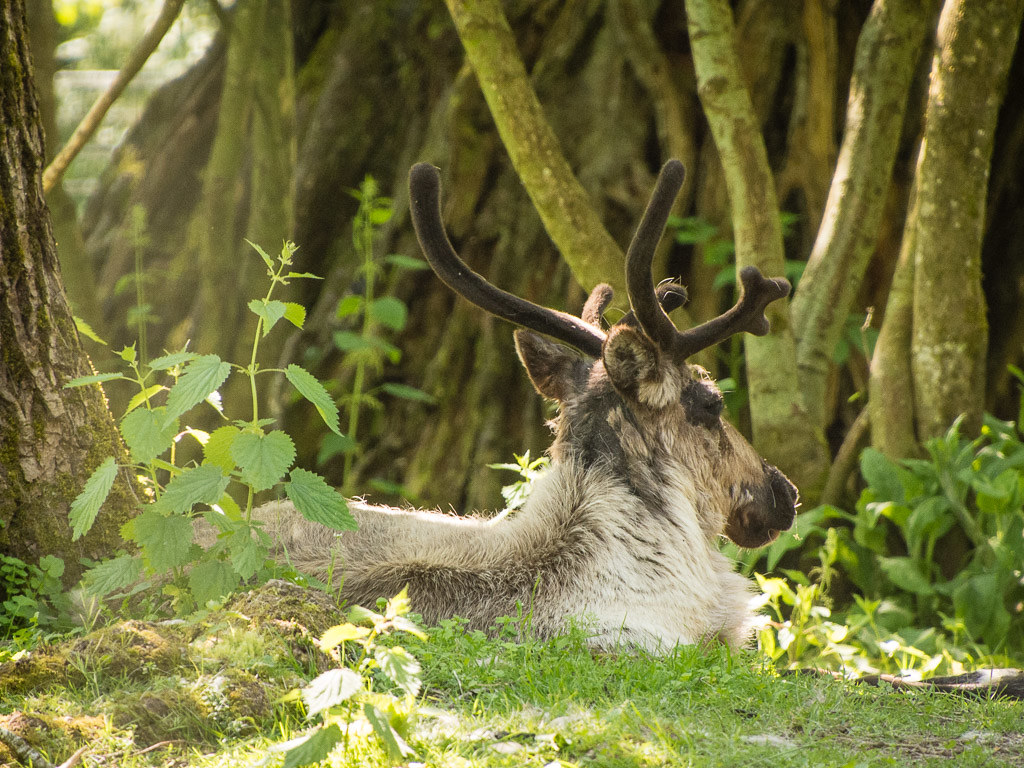One School One Farm is planning an online talk on carbon sequestration in shelterbelt trees at 7 pm, Dec. 7.
Gardening at USask is offering the following online classes. All classes begin at 7 pm.
Dec. 9 – Birds in Winter
Dec. 12 – Insects in Your Garden: An Introduction to Beetles
There will be a presentation on Saskatchewan’s woodland caribou at the 7:30 pm, Dec. 9, online meeting of the Saskatoon Nature Society.
Martensville families are invited to make lanterns and take a walk to light up the night with Wildernook Fresh Air Learning at 5, 6:30 & 8 pm, Dec. 12.
Full details on all events can be found on the EcoFriendly Sask Calendar
Across the West
The “Trudeau government needs to clarify its competing objectives, with goals to reduce algae blooms while ramping up agricultural production, which will increase nutrient runoff … ‘Lake Winnipeg won’t wait and we need to get on with restoring (its) health.’” [Winnipeg Free Press]
The Nature Conservancy of Canada has acquired 646 hectares of grasslands and wetlands located along the eastern shoreline of Chaplin Lake, the second-largest salt lake in Canada. During spring and fall migrations, thousands of shorebirds use Chaplin Lake and the surrounding grasslands to refuel or nest. [Toronto Star]
“More than 70% of boreal woodland caribou herds in Canada are in decline, and recent analysis suggests that provincial exemptions allowing forestry and oil and gas activities in critical habitat have accelerated the trend.” [Pembina Institute]
Farming the Future: Agriculture and climate change on the Canadian Prairies - a report on improving climate resilience while supporting local livelihoods. [International Institute for Sustainable Development]
A “Victoria-based photographer and activist has spent much of the past 15 years searching for and photographing some of Canada's biggest, oldest trees … Most of the trees that Watt finds are slated to be cut down.” [CBC]
“To create a circular and regenerative future, we should be looking at our neighbourhoods as fertile grounds of change, not merely as consumers of change decided elsewhere … Because the kind of transformative change needed doesn’t happen abstractly – out there – it happens here, in our houses, our offices, our streets, our river catchments, our institutions. And critically, change happens in our own ways of thinking and being … We need to be alert to context and not ask ‘what will work, generically?’ but ‘what will work and be right for this place and contribute to the bigger picture?’” [RSA]
Durham Region’s green building practices are expected to “reduce greenhouse gas emissions, build infrastructure that is resilient to future climate change and create a healthier environment for residents.” [DurhamRegion.com]
Choices
“Economists recognize that congestion reflects underpricing: driving is so cheap that it becomes inevitable. You can have free roads or you can have free-flowing traffic but it is economically infeasible to have both.” [Planetizen]
6 ways to make your flights greener and ecologically friendly. [Hand Luggage Only]
Check out EcoFriendly Sask’s Nature Companion, a free nature app for Canada’s four western provinces
EcoFriendly Sask supports Saskatchewan environmental initiatives through an online publication, an events calendar, small grants, and the Nature Companion website/app. You can follow EcoFriendly Sask by liking us on Facebook, following us on Twitter, or subscribing by email (top right corner).


